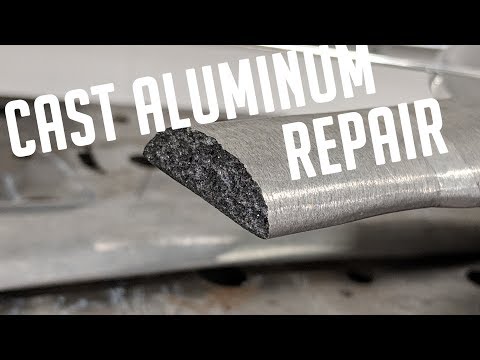A Biased View of Alcast Company
A Biased View of Alcast Company
Blog Article
Everything about Alcast Company
Table of ContentsThe 9-Minute Rule for Alcast CompanyNot known Facts About Alcast CompanySome Known Questions About Alcast Company.Alcast Company for DummiesGetting The Alcast Company To WorkAlcast Company - An Overview
The subtle difference depends on the chemical material. Chemical Contrast of Cast Aluminum Alloys Silicon promotes castability by lowering the alloy's melting temperature and improving fluidity throughout casting. It plays a crucial function in permitting detailed mold and mildews to be filled properly. Additionally, silicon adds to the alloy's strength and put on resistance, making it beneficial in applications where sturdiness is crucial, such as automobile parts and engine components.It likewise improves the machinability of the alloy, making it easier to process right into completed items. In this means, iron adds to the total workability of aluminum alloys.
Manganese adds to the strength of light weight aluminum alloys and improves workability (aluminum foundry). It is commonly used in functioned aluminum items like sheets, extrusions, and accounts. The presence of manganese help in the alloy's formability and resistance to fracturing during fabrication procedures. Magnesium is a light-weight aspect that gives stamina and influence resistance to light weight aluminum alloys.
An Unbiased View of Alcast Company
It permits the production of light-weight parts with superb mechanical properties. Zinc improves the castability of aluminum alloys and assists manage the solidification process during casting. It boosts the alloy's toughness and firmness. It is commonly discovered in applications where intricate forms and great details are essential, such as attractive castings and specific auto parts.

The main thermal conductivity, tensile toughness, yield strength, and elongation differ. Amongst the above alloys, A356 has the highest thermal conductivity, and A380 and ADC12 have the most affordable.
A Biased View of Alcast Company

In precision casting, 6063 is appropriate for applications where complex geometries and top notch surface area finishes are extremely important. Instances include telecommunication rooms, where the alloy's exceptional formability permits smooth and visually pleasing styles while keeping structural honesty. Similarly, in the Lights Solutions sector, precision-cast 6063 elements produce sophisticated and reliable lighting fixtures that need complex shapes and good thermal efficiency.
It results in a finer surface area coating and better rust resistance in A360. In addition, the A360 exhibits remarkable prolongation, making it ideal for complicated and thin-walled parts. In accuracy casting applications, A360 is well-suited for industries such as Consumer Electronic Devices, Telecommunication, and Power Devices. Its boosted fluidness allows for detailed, high-precision elements like mobile phone cases and interaction gadget housings.
Alcast Company Fundamentals Explained
Its one-of-a-kind homes make A360 a valuable selection for precision spreading in these sectors, boosting item longevity and high quality. Aluminum alloy 380, or A380, is a commonly utilized spreading alloy with a number of distinct characteristics. It uses outstanding castability, making it a suitable choice for accuracy casting. A380 exhibits good fluidness when molten, ensuring elaborate and comprehensive molds are accurately reproduced.
In precision spreading, aluminum 413 beams in the Customer Electronic Devices and Power Tools sectors. This alloy's superior corrosion resistance makes it an exceptional option for outside applications, making sure durable, long lasting items in the discussed markets.
Alcast Company Fundamentals Explained
When you have made a decision that the light weight aluminum pass away casting process is ideal for your task, a crucial following step is choosing one of the most appropriate alloy. The light weight aluminum alloy you select will significantly impact both the casting procedure and the buildings of the final item. Due to this, you must make your choice very carefully and take an educated strategy.
Figuring out the most ideal light weight aluminum alloy for your application will imply weighing a broad range of attributes. These relative alloy characteristics comply with the North American Pass Away Spreading Association's guidelines, and we've divided them right into 2 categories. The initial classification addresses alloy qualities that influence the manufacturing process. The 2nd covers characteristics impacting the properties of the end product.
About Alcast Company
The alloy you choose for die spreading straight affects a number of aspects of the casting process, like how very easy the alloy is to collaborate with and if it is vulnerable to casting issues. Warm fracturing, likewise referred to as solidification splitting, is a typical die casting defect for light weight aluminum alloys that can result in internal or surface-level tears or fractures.
Specific light weight aluminum alloys are a lot more vulnerable to hot cracking than others, and your option ought to consider this. Another common issue discovered in the die spreading of aluminum is die soldering, which is when the actors sticks to the die wall surfaces and makes ejection difficult. It can damage both the cast and the die, so you ought to search for alloys with high anti-soldering residential properties.
Rust resistance, which is already a notable attribute of light weight aluminum, can vary significantly from alloy to alloy and is a vital characteristic to consider relying on the environmental conditions your product will be subjected to (aluminum casting manufacturer). Use resistance is another residential or commercial property commonly looked for in aluminum items and aluminum foundry can set apart some alloys
Report this page